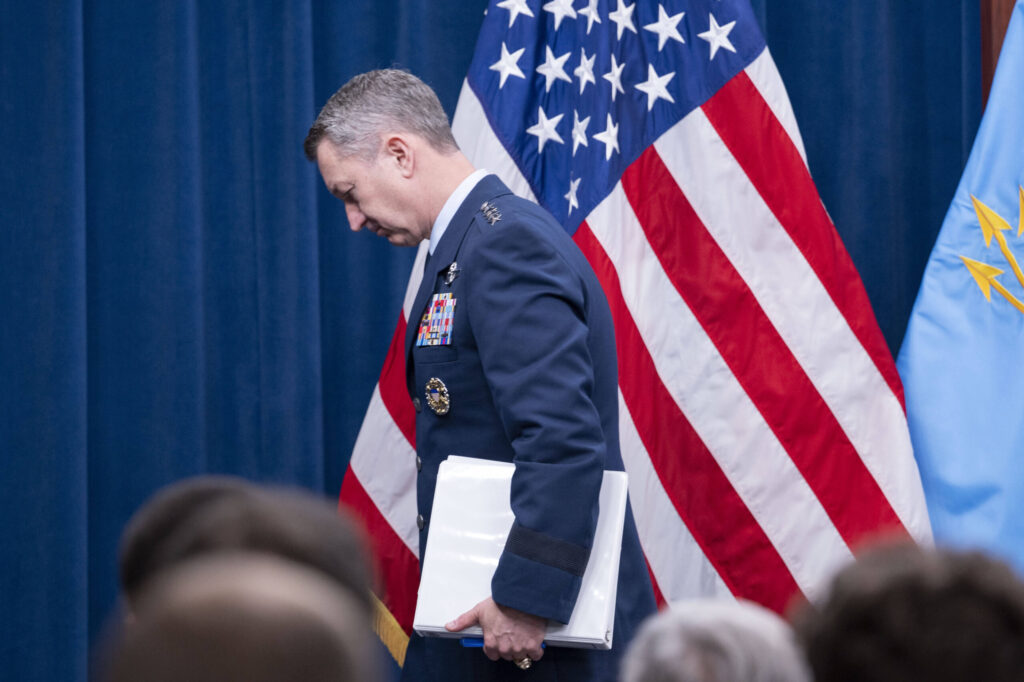
Joint Chiefs Chairman Gen. Dan Caine steps away from the podium following a news conference at the Pentagon, Thursday, June 26, 2025 in Washington. (AP Photo/Kevin Wolf)
As a military aviator and veteran of numerous contingencies, I watched with bated breath and prayers in my heart on the evening of June 21 as Operation Midnight Hammer unfolded on live television. This 37-hour long mission, involving cramped cockpits and radio silence, was a testament to the skill and courage of American airmen. That night, I went to sleep proud of my nearly four decades of military service, knowing the immense planning and flawless execution required for such a mission over enemy territory.
What those airmen, guardians, sailors, and soldiers achieved was nothing short of miraculous. No other country could have accomplished this without a single casualty or mishap. Yet, waking up the next morning, I found myself in a parallel universe. Instead of praise and pride, the airwaves were filled with naysayers, including Senator Mark Kelly, who expressed concerns about the mission’s goals and objectives.
The Political Divide
Senator Kelly, a former astronaut and decorated naval officer, suggested there was “no endgame in mind.” This statement struck me as a reflection of America’s increasing polarization. As a graduate of the Naval War College and the National War College, I learned the importance of clearly defining the end state in warfare. President Trump articulated our desired end state as an Iran free of nuclear weapons, with objectives limited to demolishing nuclear weapon production sites.
These objectives were stunning in their clarity, yet the media response was less than supportive. Reports focused on a single intelligence assessment, neglecting to mention it was preliminary and labeled “low confidence.” This omission, along with the years of preparation for the mission, was misleading.
Media’s Role and Responsibility
The media’s role is to question and scrutinize, but it should do so without misleading the public. The operation had been analyzed since at least my last Pentagon tour in 2004-05, yet the media’s portrayal seemed intent on diminishing a significant American success. A healthy nation should celebrate such achievements, recognizing the coordination between allies like Israel and the Gulf States.
“For the first time in decades, we don’t have to wake up with the threat of an Iranian nuke being developed in the next few weeks, months, or years hanging over our heads.”
This success, along with a ceasefire that appears to be holding, offers hope for peace in the Middle East. Yet, instead of celebration, the response was a search for criticism, reflecting an unhealthy political climate.
Looking Forward
As we prepare to celebrate America’s 249th birthday, we should strive to come together as one nation, as envisioned by our founding fathers. If we cannot set aside politics during times of great American accomplishment, the future of our republic may be uncertain.
Retired U.S. Air Force Lt. Gen. Rod Bishop, a veteran with nearly 6,000 flight hours, concluded his career as Air Commander Europe and Third Air Force commander. He co-founded and chairs Stand Together Against Racism and Radicalism in the Services (STARRS.US).






